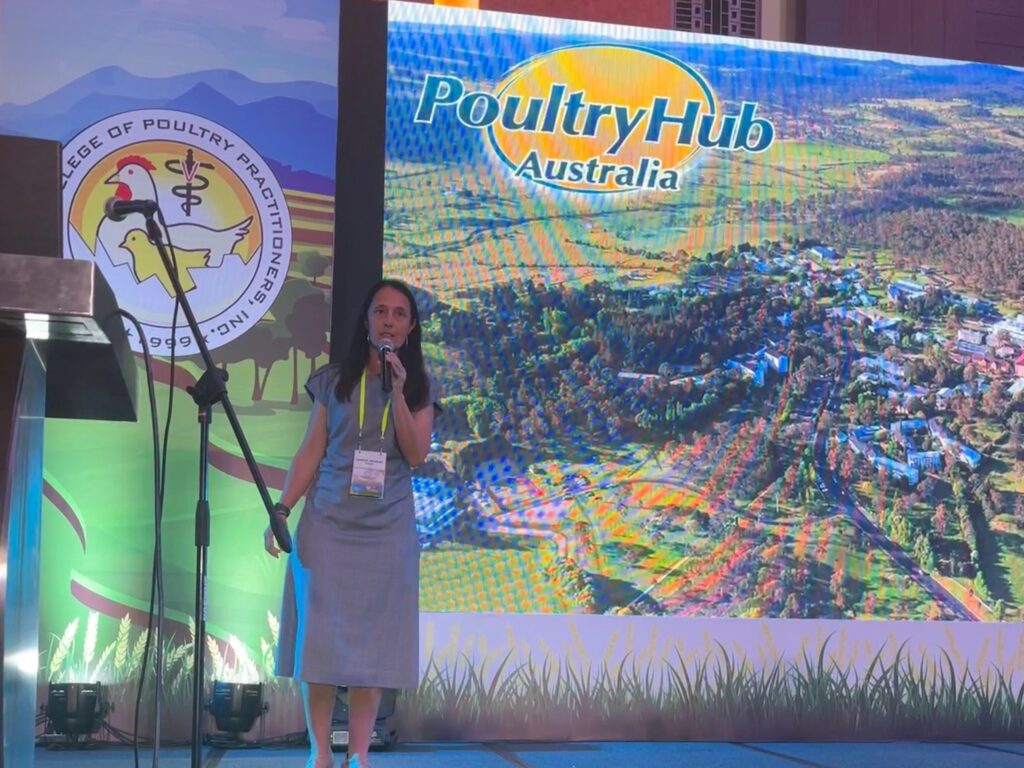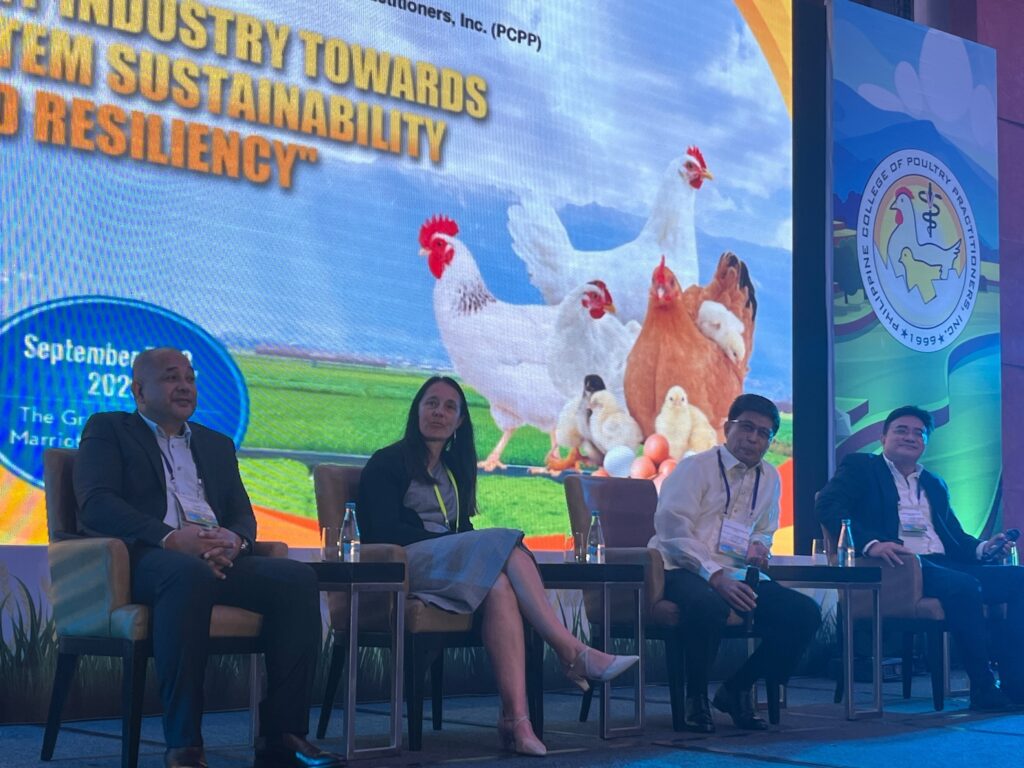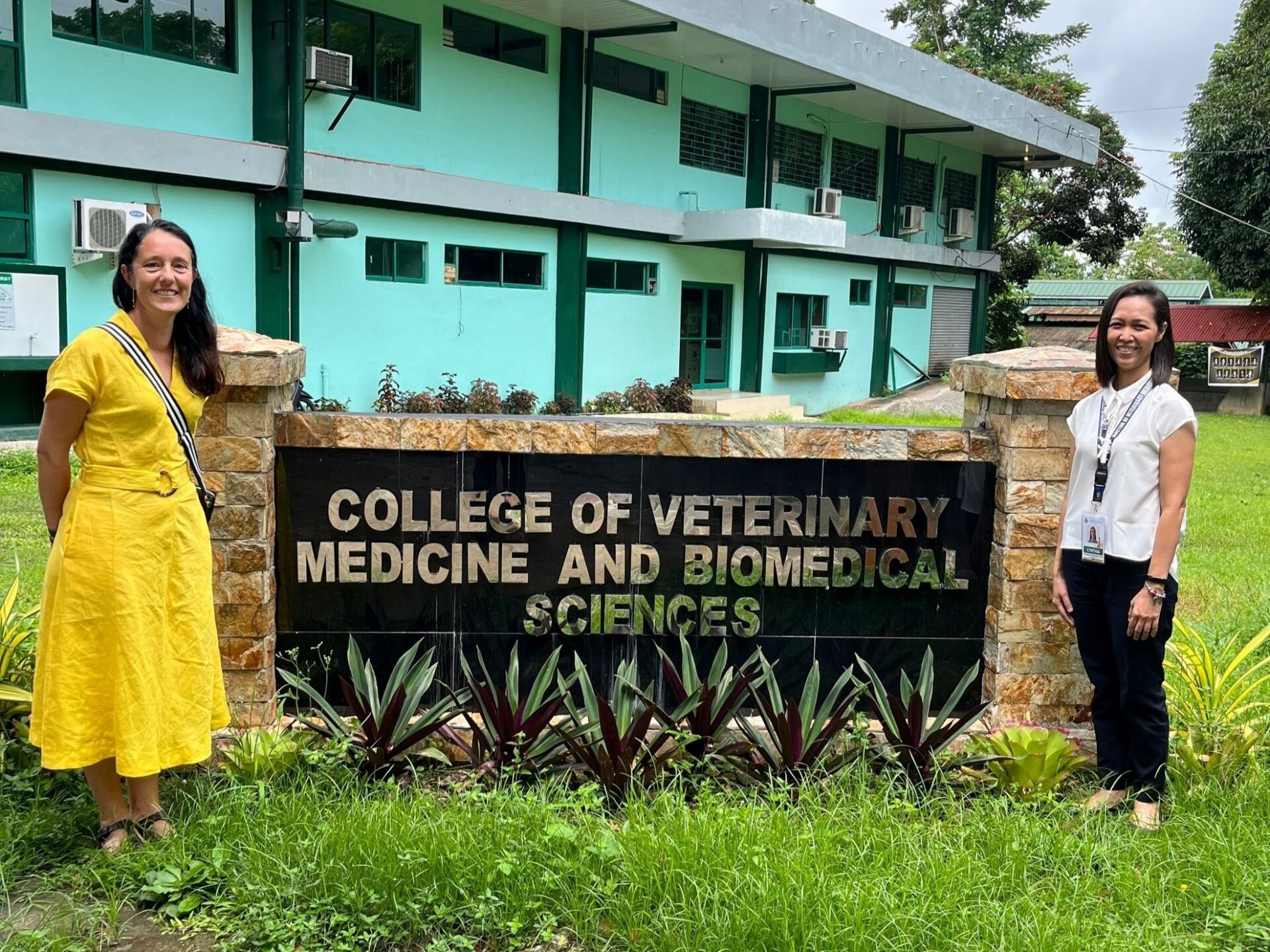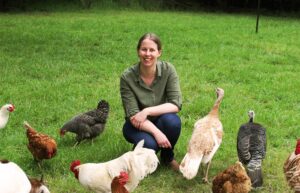In September, I had the pleasure of being invited as the opening plenary speaker to at the Philippine College of Poultry Practitioners 2023 Poultry School, a conference of over 1500 delegates held in Manila. I was tasked with exploring the resilience of the Australian poultry sector. Australia’s poultry sector has demonstrated resilience over the years, and there are several key lessons that other countries could benefit from. Australia places a strong emphasis on biosecurity to prevent the introduction and spread of diseases on poultry farms. These measures include strict import controls, quarantine protocols, and surveillance systems. The industry has a well-developed supply chain that can quickly adjust to changes in demand. Many Australian poultry producers are vertically integrated, meaning they control various stages of the supply chain, from production to processing and distribution. This integration enhances supply chain resilience and reduces vulnerabilities to disruptions. Having comprehensive contingency plans in place for disease outbreaks, market disruptions, and other emergencies is crucial. These plans outline steps to take in various scenarios, enabling the sector to respond swiftly and effectively.
Government policies and support play a significant role in ensuring the resilience of the Australian poultry sector. This includes funding for research, assistance during emergencies, and policies that promote sustainable production practices. Embracing sustainable practices, such as efficient resource use and waste management, not only benefits the environment but also improves the sector’s long-term viability. Investing in research and innovation has allowed Australia’s poultry sector to enhance its productivity, improve animal welfare, and reduce environmental impacts. Prioritizing animal welfare not only aligns with consumer preferences but also contributes to the sector’s long-term sustainability. Investments in better housing, nutrition, and health management can lead to healthier animals, higher-quality products, and increased revenue.
Australia’s poultry network plays a key role in in helping the sector manage challenges. Collaboration through sharing information, best practices, and resources has enhanced the sector’s collective ability to respond to disruptions. PHA provides training and education packages, resources, and events for the poultry industry. Ensuring a skilled workforce through training and education programs has contributed to the success of Australia’s poultry sector. By investing in human capital, countries can build a knowledgeable workforce capable of driving industry growth and innovation.
Australia’s poultry sector’s resilience can be attributed to its emphasis on biosecurity, diversification, innovation, supply chain integration, adaptation, sustainability, collaboration, crisis management, workforce development, and transparent communication. These lessons can be valuable for other countries aiming to enhance their own poultry industries’ resilience and success.






